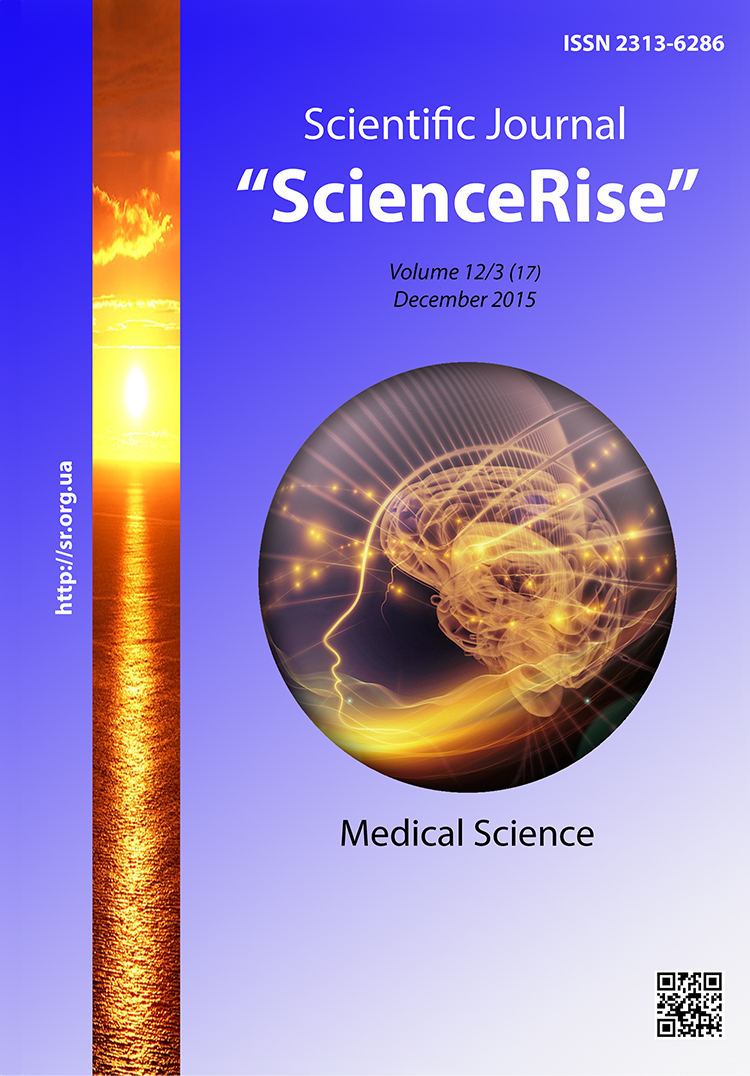Особливості емоційного інтелекту керівників закладів охорони здоров`я
DOI:
https://doi.org/10.15587/2313-8416.2015.56930Ключові слова:
емоційний інтелект, стать, вік, керівники закладів охорони здоров`яАнотація
Шляхом проведення психологічного дослідження за методикою Н. Холла визначено вікові та ґендерні особливості загального емоційного інтелекту та його складових у керівників закладів охорони здоров`я. Встановлено, що керівники жіночої статі мають достовірно вищий рівень загального емоційного інтелекту, ніж керівники чоловічої статі. Достовірно найвищий рівень зазначеного інтелекту виявлено у керівників вікової групи 50–59 років
Посилання
Minott, J., Helms, D., Luft, H., Guterman, S., Weil, H. (2010). The group employed model as a foundation for health care delivery reform. Issue Brief (Commonw Fund), 83, 1–24.
Egorov, I. A. (2006). Vlijanie urovnja jemocional'nogo intellekta rukovoditelej organizacii na vypolnenie upravlencheskih funkcij. Moscow, 24.
Provotorova, N. V. (2010). Systema profesijnoi' ta upravlins'koi' motyvacii' derzhavnyh sluzhbovciv jak predstavnykiv socionomichnyh profesij. Lygansk, 215.
Petrovskaja, A. S. (2007). Jemocional'nyj intellekt kak determinanta rezul'tativnyh parametrov i processual'nyh harakteristik upravlencheskoj dejatel'nosti. Jaroslavl, 25.
Wong, C.-S., Law, K. S. (2002). The effects of leader and follower emotional intelligence on performance and attitude. The Leadership Quarterly, 13 (3), 243–274. doi: 10.1016/s1048-9843(02)00099-1
Bachman, J., Stein, S., Campbell, K., Sitarenios, G. (2000). Emotional Intelligence in the Collection of Debt. International Journal of Selection and Assessment, 8 (3), 176–182. doi: 10.1111/1468-2389.00145
Prati, L. M., Douglas, C., Ferris, G. R., Ammeter, A. P., Buckley, M. R. (2003). Emotional intelligence, leadership effectiveness, and team outcomes. The International Journal of Organizational Analysis, 11 (1), 21–40. doi: 10.1108/eb028961
Mayer, J. D., Salovey, P. (1993). The intelligence of emotional intelligence. Intelligence, 17 (4), 433–442. doi: 10.1016/0160-2896(93)90010-3
Churakov, R. (2005). Jemocional'nyj intellekt v menedzhmente. u-journal, 1. Available at: http://www.u-journal.com/sections/management_psychology
Psilopanagioti, A., Anagnostopoulos, F., Mourtou, E., Niakas, D. (2012). Emotional intelligence, emotional labor, and job satisfaction among physicians in Greece. BMC Health Services Research, 12 (1), 463. doi: 10.1186/1472-6963-12-463
Goulman, D., Bojcis, R., Makki, Je. (2005). Jemocional'noe liderstvo: iskusstvo upravlenija ljud'mi na osnove jemocional'nogo intellekta. Moscow: Al'pina Biznes Buks, 300.
Bar-On, R. (1997). Emotional Intelligence Inventory (EQ-i). Technical Manual. Toronto.
Mayer, J. D., Salovey, P., Caruso, D. (2000). Models of Emotional Intelligence. New York: Cambridge, 396–420. doi: 10.1017/cbo9780511807947.019
Jas'ko, B. A., Kazarin, B. V., Kamushkina, L. V. (2010). Vrach-rukovoditel' kak sub’ekt vlasti i menedzhmenti. Sovremennye problemy nauki i obrazovanija, 2, 72–75.
Manjanina, T. V. (2010). Jemocional'nyj intellekt v strukture psihologicheskoj kul'tury lichnosti. Barnaul, 24.
Shabaninejad, H., Tahmasbi, A., Baratimarnani, A., Mehralian, G., Gorgi, H., Ahmadi, A. (2015). The impact of emotional intelligence on managers′ performance: Evidence from hospitals located in Tehran. Journal of Education and Health Promotion, 4 (1), 63. doi: 10.4103/2277-9531.162383
Gourzoulidis, G., Kontodimopoulos, N., Kastanioti, C., Bellali, T., Goumas, K., Voudigaris, D., Polyzos, N. (2014). Do Self-Perceptions of Emotional Intelligence Predict Health-Related Quality of Life? A Case Study in Hospital Managers in Greece. Global Journal of Health Science, 7 (1). doi: 10.5539/gjhs.v7n1p210
Rajgorodskij, D. Ja. (2005). Prakticheskaja psihodiagnostika. Metodiki i testy. Samara: Izd. dom «BAHRAH – M», 672.
##submission.downloads##
Опубліковано
Номер
Розділ
Ліцензія
Авторське право (c) 2015 Тетяна Андріївна Вежновець

Ця робота ліцензується відповідно до Creative Commons Attribution 4.0 International License.
Наше видання використовує положення про авторські права Creative Commons CC BY для журналів відкритого доступу.
Автори, які публікуються у цьому журналі, погоджуються з наступними умовами:
1. Автори залишають за собою право на авторство своєї роботи та передають журналу право першої публікації цієї роботи на умовах ліцензії Creative Commons CC BY, котра дозволяє іншим особам вільно розповсюджувати опубліковану роботу з обов'язковим посиланням на авторів оригінальної роботи та першу публікацію роботи у цьому журналі.
2. Автори мають право укладати самостійні додаткові угоди щодо неексклюзивного розповсюдження роботи у тому вигляді, в якому вона була опублікована цим журналом (наприклад, розміщувати роботу в електронному сховищі установи або публікувати у складі монографії), за умови збереження посилання на першу публікацію роботи у цьому журналі.

